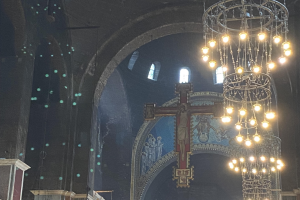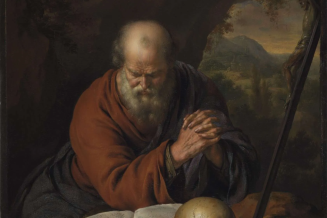Why academisation poses such a risk to our Catholic schools

Photo by Kenny Eliason on Unsplash
I read the personal reflection on academisation by Anthony Corish, with great interest. In a very measured and careful way, Anthony presents a compelling case for Catholic multi-academy trusts: highly collaborative, strong and supportive families of schools established under the authority of the Bishop and focused strongly on ensuring that the Catholic ethos of the MAT is prioritised.
It is not at all difficult to see why so many of our Bishops see Catholic multi-academy trusts as vital for the future of Catholic education and even, it seems, to the future of our Catholic faith itself or why some have pursued academisation with such absolute conviction and such determination to ensure that this happens regardless of any concerns raised by school leaders or their governing bodies.
When the case for academisation is so strong, it is reasonable to assume that school leaders and governors who raise such concerns or, even worse, fail to support the Bishop's vision for academisation, lack commitment to Catholic education or have a narrow and selfish unwillingness to collaborate with others. When so much is at stake, school leaders and governors, surely, have a responsibility, above all else, to enact the will of the Bishop.
There are, however, fundamental problems with the notion of a Catholic multi-academy trust that mean, in fact, that those who argue with such passion and conviction that Catholic MATs pose a risk to the future of Catholic education, are right to do so.
Supporters of multi-academy trusts suggest that joining a MAT will ensure that all our schools are part of a highly collaborative family of schools, sharing best practice and working together on common projects. Voluntary aided schools, they suggest, see themselves as 'educational islands'. They would prefer to 'declare UDI' rather than engage in this collaborative work with other schools. This would be a compelling reason to support academisation, but it is simply not true.
Catholic voluntary aided schools have always seen themselves as belonging to a wider family and have always worked in partnership with other schools, both in their local area and beyond. This might involve, as it did for my own school, sharing best practice with other schools, providing and receiving support or working together with other schools on shared projects.
This collaboration is all the more effective, because those involved are collaborating as equal and genuine partners. There is no CEO to take control or drive their own particular corporate agenda and no CEO who will ultimately have the final say. The collaboration is able to focus on what is right for each individual school and its pupils in a way that a corporate approach to collaboration led by a CEO can never do.
Even where a CEO is determined to allow school leaders and governors to decide for themselves what is or is not right for their own schools, the existence of the multi-academy trust is likely, in my view, to progressively diminish the rich and open collaboration that currently takes place between voluntary aided schools and other schools in the wider community.
A CEO and the Board of Directors will inevitably want to make a difference across the MAT and where the difference that they want to make, does not coincide with the difference envisaged by the leaders and governors of each individual school, the CEO will clearly be in a position to engage in this process of change with a much stronger voice. There is at least a strong likelihood that the CEO's way will ultimately become the only way.
Those who argue so strongly for academisation see this new model of leadership as beneficial to both the schools who belong to the MAT and the wider Catholic community. They refer to academisation as being the best way of 'preserving and protecting our schools' as well as 'nourishing and enhancing them in their continuing service of the wider Mission in education'.
I do not agree and would suggest instead, for reasons that I will set out, that this model of leadership is fundamentally flawed, particularly in the context of Catholic education.
The leadership of a Catholic school, as opposed to just any school, requires a different kind of leadership: leadership that is focused on service and rooted securely in a deep and compassionate, Christ-centred knowledge and understanding of the distinctive nature of each school community.
The headteacher and the governing body of a Catholic school will lead change on the basis of their own lived experience and knowledge of what is working well, what is not working and what needs to change as well as how this change needs to be brought about. This is central to what it means to be a school leader and a leader's capacity to make a real and lasting difference depends to a great extent on this rich combination of deep service and knowledge.
I have no doubt that those who have been appointed as CEOs will also want to bring about change and will want to ensure that this change is driven by a strong sense of service and a deep knowledge of what is right for each school. This is why the leadership model of a multi-academy trust is so flawed in the context of Catholic education.
However committed and hard-working the CEO and the Board of Directors of a particular MAT might be, the insight that they bring to the corporate leadership of the group of schools as a whole cannot hope to replicate the depth of knowledge developed over time by the leaders and governors of each individual school. In terms of leadership, 'the whole' in this case is much weaker than the 'sum of the parts'.
Supporters of the academisation model will suggest that the CEO is there to facilitate and support school leaders: to enable and empower them to do what is right for each school.
Ultimately, however, the CEO is there to lead and the leaders of each school in the MAT will, in the end, have to follow. Headteachers who were previously able to genuinely lead their school communities are now, to some extent, involved in following someone else, who is removed from and not part of their own school community.
Where the leadership of an individual school is weak, the CEO might have the capacity to make a positive contribution. Where school leadership is already strong, however, the involvement of a CEO, even a very capable CEO, is at risk of being disastrous.
In such circumstances, the corporate requirement to collaborate with others on corporate 'agendas' will at best be a huge distraction: a distraction that will over time undermine leaders and governors and come to weaken the distinctive nature of each individual school in the MAT. In the business world and in secular education, finding corporate solutions that will apply across the group as a whole may be desirable. It is not at all desirable for our Catholic schools.
Catholic schools need headteachers and governors who know their schools exceptionally well. They do not need corporate branding or 'common' multi-academy trust approaches that are not grounded in what is right for each individual school. They do not need to be reduced to being part of a chain of educational 'branches' where there is, inevitably, a focus on corporate affairs and maximising efficiency across the business as a whole. They do not need a CEO or a Board of Directors.
The distinctive ethos of a Catholic voluntary aided school, supported by a strong and committed governing body able to make their own decisions to ensure that this ethos remains strong and Christ-centred is indeed at risk from a model of school leadership and governance that is seeking to replicate what is effectively a business model for delivering education.
This perhaps explains why so many strong and deeply committed Catholic school leaders working in voluntary aided schools are so opposed to academisation. It is not at all because they want to 'declare UDI' or because they are in some way less committed to serving Catholic education. It is in fact the opposite of these things.
I agree with Anthony Corish that the views of those who regard academisation as a threat to the future of Catholic education should be respected. It would have helped if they had been respected, particularly, when academisation strategies were being developed in the first place.
I commend strongly the approach to academisation set out by the Archdiocese of Liverpool, which is predicated on the basis that 'schools will not be compelled to become academies and that, in almost all cases, the choice on whether to become an academy rests with each governing body'. Any approach that has as its starting point, a deep respect for the views of those who are in the best position to know what is right for their own school community, its pupils and its staff, is to be welcomed.
I am concerned that the approach adopted by some dioceses does not respect at all the views of those who are most able to determine for themselves what is right for their school. Where the concerns of leaders and governors are misrepresented as showing a lack of commitment to the future of Catholic education or even disloyalty to the diocesan Bishop, we are right to be concerned.
We are right to be even more concerned where diocesan authorities have sought to crush dissent by removing committed and hard working foundation governors who have failed to reach the 'required' decision by the deadline set for them by the diocesan authority.
When any strategy has to be forced on others, particularly those who have genuine and serious concerns that the strategy is wrong and when implementing the strategy is driven by approaches that are themselves very worrying, something is clearly wrong.
It is so often the case that we do not fully appreciate what we once had until it has been lost. The distinctive ethos of a Catholic voluntary aided school, served by leaders and governors who know their school exceptionally well and decide for themselves what is right for their pupils is a great treasure. Their capacity to make these decisions ensures that this distinctive ethos remains strong, but does not mean at all that voluntary aided schools exclude collaboration with others. Strong voluntary aided schools have a greater capacity to engage strongly with the wider community, both within and beyond the Catholic sector, than any school that has joined a multi-academy trust will ever have.
Anyone involved in education will know from experience that educational change is so often followed by collective educational regret. What seemed at the time to be the right solution at the right time has so often proved to be the wrong solution entirely. This applies, in my view, to academisation.
What seemed on the surface to be the right course of action for the future of Catholic education itself, is in fact the solution that poses the greatest risk to the uniquely distinctive nature of our Catholic voluntary aided schools.
David Hubbard is a retired headteacher who worked in Catholic education for 36 years prior to his retirement. He is writing in a personal capacity.


















